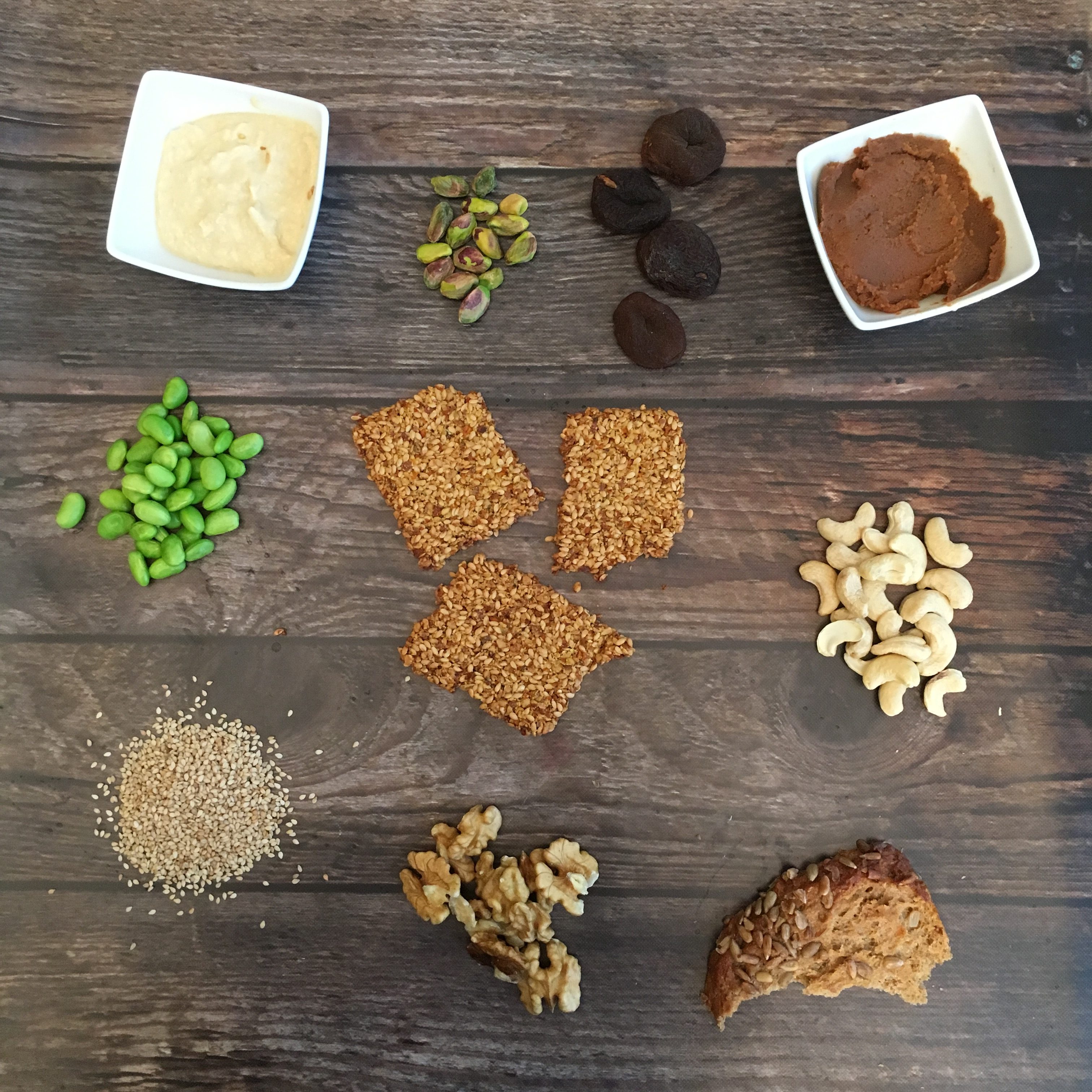
Phytoestrogens are plant compounds that can help balance oestrogen levels. Phytoestrogens have a similar structure to estradiol, an important female hormone, which gives them the nearly magical ability to modulate oestrogen levels both up or down by plugging themselves in or blocking the receptor sites for estrogen.
Another way some phytoestrogens can regulate our hormones is by increasing or decreasing the production of sex hormone-binding globulin (SHBG) in the liver which help reduce/increase levels of testosterone and oestrogen as needed.
So these fabulous compounds should be part of our daily diet to help modulate our oestrogen levels, especially when PMS, endometriosis or PCOS are an issue. As we age our ovaries produce less of this hormone resulting in unwelcome symptoms such as headaches and migraines, hot flushes, irregular periods and breast tenderness which can be alleviated by phytoestrogens as they mimic the action of oestrogen itself.
Dietary phytoestrogens are metabolised by intestinal bacteria and absorbed in the gut so looking after your gut can ensure you make the most of dietary intake.
And don’t forget that the effects of whatever phytoestrogens you add to your diet will depend on quantity, so add them generously and regularly to your meals. Metabolism of these compounds by intestinal bacteria and absorption in the gut are very important so looking after your gut can ensure you make the most of dietary intake!
Phytoestrogens can be divided into flavonoids, which includes genistein found in abundance in soya beans, and lignans mainly found in seeds including flax and sesame seeds.
Foods high in flavonoids and lignans include: flaxseeds, soybeans and other soy products, tofu, tempeh, sesame seeds, hummus, garlic, pistachios, dried apricots etc. For further food sources click on the link: Phytoestrogen food sources
Any questions? Please get tin touch, we’d love to hear from you! Just drop us a line on info@puplecarrotnutrition.co.uk.
For a full version of this article including references, please email info@purplecarrotnutrition.co.uk.
If you would like to hear about new postings, please join our mailing list.